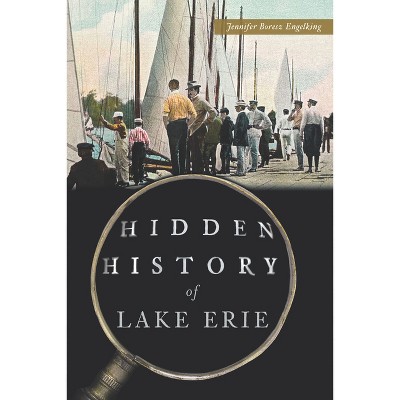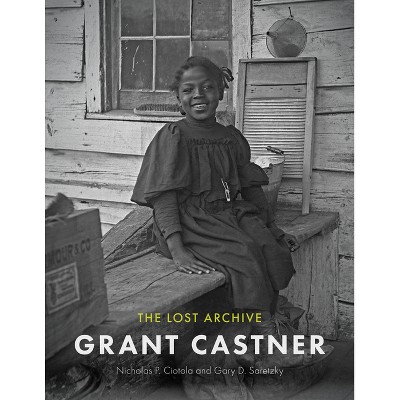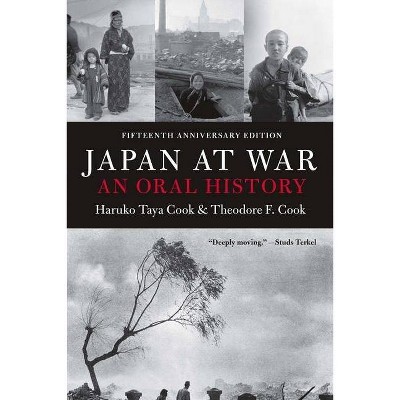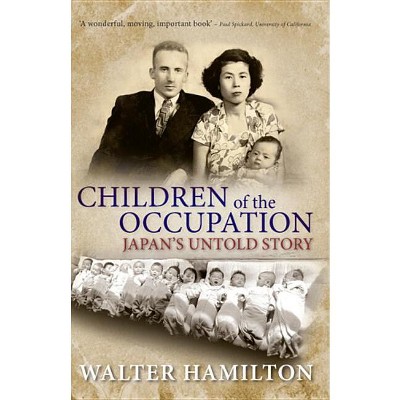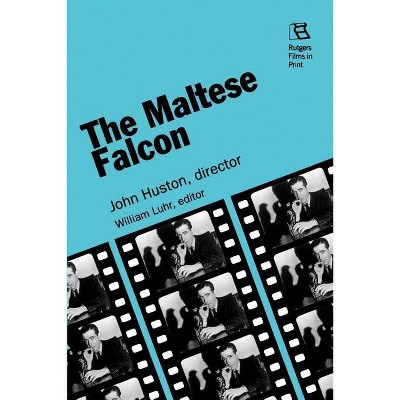Sponsored

Rutgers Meets Japan - (Ceres: Rutgers Studies in History) by Haruko Wakabayashi & Fernanda Perrone (Paperback)
$59.95
Pre-order
Eligible for registries and wish lists
Sponsored
About this item
Highlights
- In 1867 Kusakabe Taro, a young samurai from Fukui, Japan, began studying at Rutgers as its first foreign student.
- About the Author: HARUKO WAKABAYASHI is an associate teaching professor in the Department of Asian Languages and Cultures at Rutgers-New Brunswick.
- 368 Pages
- History, Asia
- Series Name: Ceres: Rutgers Studies in History
Description
About the Book
In 1867 Kusakabe Taro, a young samurai from Fukui, Japan, began studying at Rutgers as its first foreign student. Three years later, in 1870, his former tutor, friend, and Rutgers graduate, William Elliot Griffis, left for Japan to teach English and science. Griffis and Kusakabe were a small piece of a vast transnational network of leading modernizers of Japan in the 1860s and 70s. Through contributions from scholars and archivists in the U.S., Canada, and Japan, Rutgers Meets Japan aims to reconstruct these early Rutgers-Japan connections.Book Synopsis
In 1867 Kusakabe Taro, a young samurai from Fukui, Japan, began studying at Rutgers as its first foreign student. Three years later, in 1870, his former tutor, friend, and Rutgers graduate, William Elliot Griffis, left for Japan to teach English and Science for three and a half years. The year 2020 marked the 150th anniversary of two landmark events in the history of the Rutgers-Japan relationship: the untimely death of Kusakabe only weeks before his graduation, and his friend Griffis' departure to Japan. Griffis and Kusakabe were only a small piece of a vast transnational network of leading modernizers of Japan in the 1860s and 70s. The Japanese students in New Brunswick were young and innovative men of samurai and aristocratic lineage, who were sent by reform-minded leaders of Japan, which was undergoing a dramatic transformation. They came to New Brunswick seeking Western knowledge that was much needed for the modernization of a newly forming nation. New Brunswick became the hub of a network of Japanese nationals that extended to the major cities of New York, Philadelphia, and Boston, and from there to the smaller towns of New England. Once in New Brunswick, these Japanese students were embraced by Protestant ministers, educators, and missionaries--both men and women--whose network encompassed Rutgers College and the neighboring New Brunswick Theological Seminary, and which stretched to Dutch Reformed parishes throughout the Eastern seaboard, and westward as far as the Dutch enclave of Holland, Michigan. Meanwhile, the American teachers and missionaries who left for Japan became part of a network of reformist leaders and Japanese returnees that extended to schools, colleges, and missions in Japan, and formed the foundations of Japan's modern educational system. Through contributions from scholars and archivists in the U.S., Canada, and Japan, Rutgers Meets Japan aims to reconstruct the early Rutgers-Japan connections and examine the role and impact of this transnational network on Japan and the U.S. in the late nineteenth century.Review Quotes
"Based on careful archival research, this book presents a compelling picture of a transpacific network between the U.S. and Japan. Among the signal contributions of this work is its engaging and poignant discussion of the experiences of both Japanese students on the Eastern Seaboard and American missionaries in Japan in the decades after the opening of the Japanese treaty ports."
--Steven J. Ericson "Dartmouth College" (6/6/2025 12:00:00 AM)
"By tracing the lives of key figures and formative themes in unprecedented detail, Rutgers Meets Japan demonstrates the singular role Rutgers played in the formative years of Japanese modernization, and by extension its importance in developing Japan-U.S. relations more broadly. The book stands alone, providing its own timely and unique contribution to our knowledge of Japan-U.S. relations."--Andrew Cobbing "University of Nottingham" (6/6/2025 12:00:00 AM)
About the Author
HARUKO WAKABAYASHI is an associate teaching professor in the Department of Asian Languages and Cultures at Rutgers-New Brunswick. She is the author of The Seven Tengu Scrolls: Evil and the Rhetoric of Legitimacy in Medieval Japanese Buddhism. FERNANDA PERRONE is the Archivist and Head of the Exhibitions Program and Curator of the William Elliot Griffis Collection, Special Collections/University Archives at Rutgers University. She is the co-author of The Douglass Century: The Transformation of the Women's College at Rutgers (Rutgers University Press).Dimensions (Overall): 9.25 Inches (H) x 6.13 Inches (W)
Weight: 1.0 Pounds
Suggested Age: 22 Years and Up
Number of Pages: 368
Genre: History
Sub-Genre: Asia
Series Title: Ceres: Rutgers Studies in History
Publisher: Rutgers University Press
Theme: Japan
Format: Paperback
Author: Haruko Wakabayashi & Fernanda Perrone
Language: English
Street Date: January 13, 2026
TCIN: 1005850728
UPC: 9781978839106
Item Number (DPCI): 247-09-9680
Origin: Made in the USA or Imported
If the item details aren’t accurate or complete, we want to know about it.
Shipping details
Estimated ship dimensions: 1 inches length x 6.13 inches width x 9.25 inches height
Estimated ship weight: 1 pounds
We regret that this item cannot be shipped to PO Boxes.
This item cannot be shipped to the following locations: American Samoa (see also separate entry under AS), Guam (see also separate entry under GU), Northern Mariana Islands, Puerto Rico (see also separate entry under PR), United States Minor Outlying Islands, Virgin Islands, U.S., APO/FPO
Return details
This item can be returned to any Target store or Target.com.
This item must be returned within 90 days of the date it was purchased in store, shipped, delivered by a Shipt shopper, or made ready for pickup.
See the return policy for complete information.



